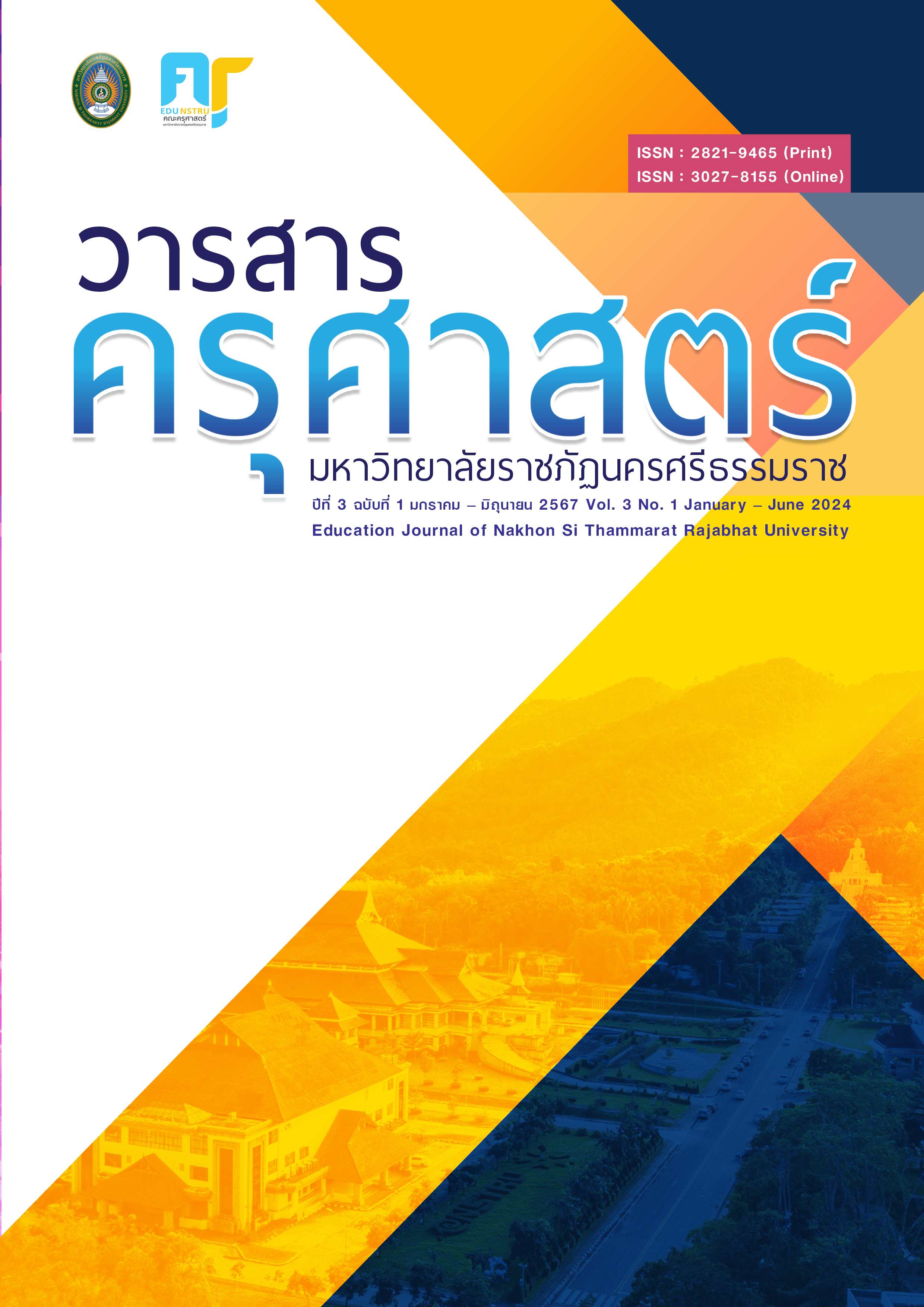Results of Learning Management Using Community-Based Learning : CBL Integrated with the Philosophy of Sufficiency Economy To Develop Academic Achievement and Creative Thinking Skills For Grade 11 Students at Phuangpromkhonwitthaya School.
Main Article Content
Abstract
Results of community-based learning Integrated with the Philosophy of sufficiency economy to develop academic achievement and creative thinking skills for grade 11 students at Phuangpromkhonwittaya School. It is an experimental research. The objectives are to 1) compare academic achievement about community economy before and after 2) Study creative thinking skills After receiving learning and 3) Study the satisfaction of grade 11 students after receiving learning management. The sample group was grade 11 students at Phuangpromkhonwittaya School. obtained by simple random sampling Classrooms were used as random units. Number of classrooms: 14 students The tools used in the research are Learning management plan about community economy academic achievement test creative thinking skills assessment and assessment of satisfaction with learning management data collection starting with pre-experiment testing. Carry out learning management test after experiment evaluate satisfaction and evaluate creative thinking skills data analysis to compare academic achievement using t - test dependent, analyze the results of the assessment of creative thinking skills and student satisfaction. Calculate the mean () and standard deviation (S.D.). Then compare interpretation criteria.
The research results found that Academic achievement in social studies about community economy for grade 11 students after receiving community-based learning. The average score after studying was higher than before studying. Statistically significant at the .05 level. Results of assessment of creative thinking skills at a good level and the results of the evaluation of satisfaction with learning management at the highest level.
Article Details

This work is licensed under a Creative Commons Attribution-NonCommercial-NoDerivatives 4.0 International License.
บทความที่ได้รับการตีพิมพ์เป็นลิขสิทธิ์ของวารสารครุศาตร์ มหาวิทยาลัยราชภัฏนครศรีธรราช
ข้อความที่ปรากฏในบทความแต่ละเรื่องในวารสารวิชาการเล่มนี้เป็นความคิดเห็นส่วนตัวของผู้เขียนแต่ละท่านไม่เกี่ยวข้องกับวารสารครุศาสตร์ มหาวิทยาลัยราชภัฏนครศรีธรรมราช
References
Guilford, J.P. (1967). The Nature of Human Intelligence. New York: Mc Graw-Hill Book Company.
Jensantikul, N. (2021). Community-Based Learning Process : Reflections on Experience and Learning. Journal of Humanities and Social Sciences Mahamakut Buddhist University Isan Campus, 2(3), 78–85. Retrieved from https://so06.tci-thaijo.org/index.php/jhsmbuisc/article/view/253640 (in Thai)
Likert, R. (1987). New patterns of management. New York: McGraw-Hill.
Ministry of Education. (2023). Announcement of the Ministry of Education on Educational Policy of the Ministry of Education. Fiscal year 2024 – 2025. Bangkok. (in Thai)
Nandilok, P. (2021). Development of community-based learning activities on living a self-sufficient life. Grade 4 (Thesis for the Master of Education degree). Maha Sarakham: Maha Sarakham Rajabhat University. (in Thai)
Office of the Secretariat of the Education Council. (2017). National Education Plan 2017 – 2036. Bangkok: Phrikwan Graphics. (in Thai)
Phinla, W., & Phinla, W. (2023). Classroom of Social Studies Teacher with Learning Management using Community-Based Learning. Journal of Education Thaksin University, 23(2), 1–12. https://doi.org/10.55164/jedutsu.v23i2.259549 (in Thai)
Sinhachotsukkapat, R. (2020). Development of a virtual outdoor learning model combined with community-based learning management. To promote a sense of commitment to citizenship among high school students (Thesis for the Master of Education degree). Bangkok: Chulalongkorn University. (in Thai)


